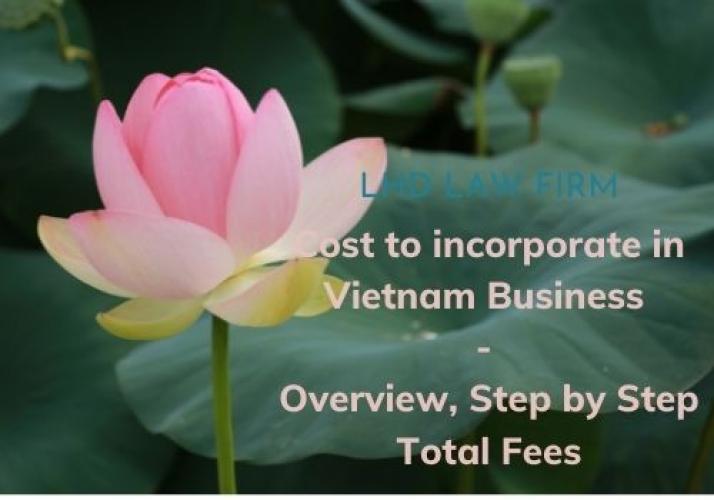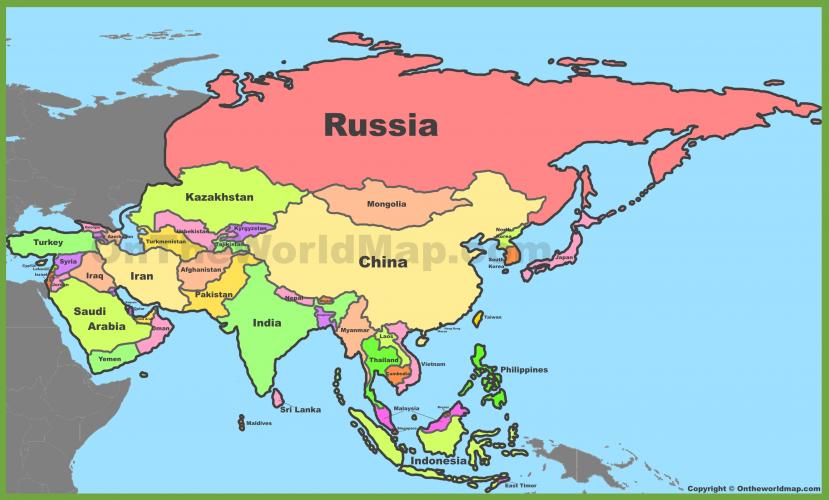Doing Business in Vietnam: Key Insights and Opportunities for Success
- 23/08/2024

Doing business in Vietnam (LHD Law Firm advise)
 CONTENT
CONTENT
 CONTENT
CONTENT
How to Setup business in Vietnam 2024
Vietnam has emerged as an attractive destination for entrepreneurs and investors looking to expand their business horizons. With its rapidly growing economy, strategic location in Southeast Asia, and business-friendly policies, Vietnam offers a wealth of opportunities for those willing to navigate its unique business landscape. This comprehensive guide will walk you through the essential steps and considerations for setting up a business in Vietnam, providing you with the knowledge and insights needed to embark on your entrepreneurial journey in this dynamic country.
Overview of Vietnam's Business Environment and Opportunities for Entrepreneurs

Vietnam's Economic Landscape
Vietnam's economy has undergone a remarkable transformation over the past few decades, transitioning from a centrally planned system to a market-oriented economy. This shift has resulted in impressive economic growth, with the country consistently ranking among the fastest-growing economies in the world.
The country's GDP has been expanding at an average rate of 6-7% annually, demonstrating resilience even in the face of global economic challenges. This robust growth has been fueled by a combination of factors, including increased foreign direct investment, a burgeoning middle class, and a government committed to economic reforms and integration into the global economy.
Key Industries and Sectors
Vietnam's economic landscape is diverse, offering opportunities across various sectors. Some of the key industries that have been driving growth and attracting both domestic and foreign investment include:
- Manufacturing: Vietnam has become a major manufacturing hub, particularly in electronics, textiles, and footwear. The country's competitive labor costs and improving infrastructure have made it an attractive alternative to traditional manufacturing powerhouses like China.
- Information Technology: The IT sector in Vietnam is rapidly expanding, with a focus on software development, outsourcing services, and e-commerce. The country's young, tech-savvy workforce has been a significant driver of growth in this sector.
- Agriculture and Food Processing: Despite urbanization, agriculture remains a crucial sector of the Vietnamese economy. There are increasing opportunities in modernizing agricultural practices and developing value-added food processing industries.
- Tourism and Hospitality: With its rich cultural heritage, stunning landscapes, and beautiful beaches, Vietnam's tourism sector has been booming. This growth has created numerous opportunities in hospitality, travel services, and related industries.
Advantages of Doing Business in Vietnam
Vietnam offers several advantages that make it an attractive destination for entrepreneurs and investors:
- Strategic Location: Situated in the heart of Southeast Asia, Vietnam provides easy access to other major markets in the region, including China, Japan, and South Korea.
- Young and Growing Workforce: With over half of its population under the age of 35, Vietnam boasts a young, dynamic, and increasingly skilled workforce. This demographic dividend is a significant asset for businesses looking to tap into a pool of talented and motivated employees.
- Improving Business Environment: The Vietnamese government has been actively working to improve the ease of doing business in the country. Reforms have been implemented to streamline bureaucratic processes, enhance transparency, and create a more investor-friendly environment.
- Growing Consumer Market: As Vietnam's middle class expands, so does its consumer market. This presents opportunities for businesses catering to the evolving needs and preferences of Vietnamese consumers.
- Free Trade Agreements: Vietnam is a party to several free trade agreements, including the Comprehensive and Progressive Agreement for Trans-Pacific Partnership (CPTPP) and the EU-Vietnam Free Trade Agreement (EVFTA). These agreements provide preferential access to major global markets, creating export opportunities for businesses based in Vietnam.
Understanding these aspects of Vietnam's business environment is crucial for entrepreneurs looking to establish a presence in the country. The combination of economic growth, diverse sectors, and strategic advantages makes Vietnam an exciting destination for business ventures. However, it's essential to approach the market with a well-researched strategy and a clear understanding of the local business culture and regulatory landscape.
Market Research and Business Planning
Conducting Thorough Market Research
Before diving into the Vietnamese market, it's crucial to conduct comprehensive market research. This research will provide you with valuable insights into the local business landscape, consumer behavior, and potential opportunities and challenges.
Start by analyzing market trends specific to your industry in Vietnam. Look at historical data, current market conditions, and future projections. This will help you understand the market's trajectory and identify potential niches or gaps that your business could fill.
Consider engaging with local market research firms or consultancies that specialize in the Vietnamese market. Their expertise and on-the-ground knowledge can be invaluable in providing nuanced insights that might not be apparent from abroad.
Don't forget to study consumer behavior in Vietnam. Understanding local preferences, purchasing habits, and cultural nuances is crucial for tailoring your products or services to the Vietnamese market. This might involve conducting surveys, focus groups, or analyzing existing consumer data.
Identifying Your Target Market
Once you have a good grasp of the overall market, it's time to narrow down your focus and identify your specific target market. This process involves segmenting the market based on various factors such as demographics, psychographics, and behavioral characteristics.
Consider the following questions:
- Who are your ideal customers in Vietnam?
- What are their needs, preferences, and pain points?
- How does your product or service address these needs?
- Where are these customers located within Vietnam?
- What is their purchasing power and willingness to pay?
Creating detailed buyer personas can be a helpful exercise in this process. These fictional representations of your ideal customers can guide your business strategies and marketing efforts.
Remember that Vietnam is a diverse country with regional differences in culture, dialect, and consumer behavior. What works in Ho Chi Minh City might not necessarily work in Hanoi or Da Nang. Be prepared to adapt your approach based on these regional nuances.
Crafting a Robust Business Plan
With your market research and target market identification complete, it's time to craft a comprehensive business plan. This document will serve as your roadmap for establishing and growing your business in Vietnam.
Your business plan should include:
- Executive Summary: A concise overview of your business concept and goals.
- Company Description: Detailed information about your company, including its structure, mission, and vision.
- Market Analysis: Insights from your market research, including industry trends and competitive landscape.
- Organization and Management: An outline of your company's organizational structure and key team members.
- Products or Services: A detailed description of what you're offering and how it meets market needs.
- Marketing and Sales Strategy: Your plan for reaching and converting your target market.
- Funding Requirements: If applicable, outline your funding needs and how you plan to use the capital.
- Financial Projections: Realistic forecasts of your revenue, expenses, and profitability.
When crafting your business plan for the Vietnamese market, pay special attention to how you'll adapt your business model to local conditions. This might involve adjustments to your pricing strategy, distribution channels, or even your product offerings.
Also, consider potential challenges specific to doing business in Vietnam, such as regulatory hurdles, cultural differences, or infrastructure limitations. Addressing these proactively in your business plan will demonstrate your preparedness to potential investors or partners.
Analyzing the Competitive Landscape
A crucial component of your market research and business planning is a thorough analysis of your competitors in Vietnam. This will help you understand where your business fits in the market and how you can differentiate yourself.
Start by identifying both direct and indirect competitors. Direct competitors are businesses offering similar products or services, while indirect competitors may be solving the same customer problem in a different way.
Analyze their strengths and weaknesses:
- What are they doing well?
- Where are they falling short?
- How are they positioning themselves in the market?
- What pricing strategies are they using?
- How are they reaching and engaging with customers?
This analysis will help you identify opportunities to differentiate your business and create a unique value proposition for the Vietnamese market.
Don't forget to also look at potential future competitors. Are there any emerging startups or international companies planning to enter the Vietnamese market in your industry?
Validating Your Business Concept
Before fully committing to your business idea, it's wise to validate it in the Vietnamese market. This can help you refine your concept and reduce the risk of failure.
Consider these validation strategies:
- Prototype Testing: If you're offering a product, create a prototype and get feedback from potential customers in Vietnam.
- Pilot Programs: For services, consider running a small-scale pilot program to test your concept and gather real-world data.
- Pre-sales: If possible, try to secure pre-orders or letters of intent from potential customers.
- Minimum Viable Product (MVP): Launch a basic version of your product or service to test market response before investing in a full-scale rollout.
Remember, the goal of validation is not just to confirm that your idea is good, but also to gather valuable feedback that can help you improve and adapt your offering for the Vietnamese market.
By thoroughly researching the market, identifying your target audience, crafting a robust business plan, analyzing the competition, and validating your concept, you'll be well-prepared to launch your business in Vietnam. This preparation will not only increase your chances of success but also help you navigate the unique challenges and opportunities of the Vietnamese business landscape.
Legal Requirements and Business Structures

Understanding Vietnam's Legal Framework
Navigating the legal landscape is a crucial step in setting up a business in Vietnam. The country's legal system is based on civil law, with influences from socialist legal theory. As an entrepreneur, it's essential to familiarize yourself with the key laws and regulations that govern business activities in Vietnam.
The primary legal document governing foreign investment in Vietnam is the Law on Investment. This law outlines the rights and obligations of foreign investors, investment incentives, and the procedures for establishing a business in the country. It's complemented by the Law on Enterprises, which regulates the establishment, management, and operation of various business structures.
Other important laws to be aware of include:
- The Labor Code: Governs employment relationships and working conditions.
- The Law on Intellectual Property: Protects trademarks, patents, and copyrights.
- The Law on Competition: Regulates fair competition and prevents monopolistic practices.
- The Law on Tax Administration: Outlines tax obligations and procedures.
It's important to note that laws and regulations in Vietnam can be subject to frequent changes and updates. Staying informed about these changes is crucial for maintaining compliance and avoiding potential legal issues.
Choosing the Right Business Structure
Vietnam offers several business structures for foreign investors. The choice of structure will depend on various factors, including the nature of your business, capital requirements, and long-term goals. Here are the most common options:
- Limited Liability Company (LLC): This is the most popular structure for foreign investors in Vietnam. An LLC can be established with one or more members, with the liability of each member limited to their capital contribution. LLCs are suitable for a wide range of business activities and offer flexibility in terms of management structure.
- Joint Stock Company (JSC): Similar to a public limited company, a JSC can issue shares and bonds. This structure is suitable for larger businesses and those planning to list on the stock exchange. JSCs must have at least three shareholders.
- Representative Office: This is not a separate legal entity but an extension of a foreign company. Representative offices cannot engage in profit-making activities but can conduct market research, promote the parent company's products, and act as a liaison with Vietnamese partners.
- Branch Office: A branch office is a dependent unit of the foreign company and can engage in commercial activities. However, branches are only permitted in certain sectors, such as banking and law.
- Business Cooperation Contract (BCC): This is a cooperation agreement between foreign and Vietnamese partners without creating a new legal entity. BCCs are common in sectors like oil and gas exploration.
When choosing a business structure, consider factors such as:
- Capital requirements
- Liability protection
- Tax implications
- Management flexibility
- Ability to expand or exit the market
It's advisable to consult with legal and tax professionals familiar with Vietnamese law to determine the most suitable structure for your business.
Registration Process and Required Documentation
Once you've chosen your business structure, the next step is to register your company. The registration process in Vietnam involves several steps and requires careful preparation of documentation.
The main steps in the registration process typically include:
- Obtaining an Investment Registration Certificate (IRC): This is required for foreign-invested projects and is issued by the Department of Planning and Investment.
- Obtaining an Enterprise Registration Certificate (ERC): This certificate officially establishes your company as a legal entity in Vietnam.
- Post-licensing procedures: These include opening a bank account, registering the company seal, and obtaining necessary sub-licenses or permits specific to your industry.
The documentation required for registration may include:
- Articles of Association
- Lease agreement for office space
- Passport copies and criminal record checks for company representatives
- Bank statements proving financial capacity
- Business plan
- Joint Venture Agreement (if applicable)
It's important to note that all documents must be in Vietnamese or accompanied by a certified Vietnamese translation. The specific requirements can vary depending on your business structure and industry, so it's crucial to verify the exact requirements with the relevant authorities or seek assistance from a local legal expert.
Compliance with Industry-Specific Regulations
Depending on your industry, you may need to comply with additional regulations and obtain specific licenses or permits. Some sectors, such as finance, education, and healthcare, are subject to stricter regulations and may require approval from multiple government agencies.
For example:
- Financial services companies may need approval from the State Bank of Vietnam.
- Educational institutions require licensing from the Ministry of Education and Training.
- Food and beverage businesses need to comply with food safety regulations and obtain relevant certifications.
Research the specific requirements for your industry and factor these into your business plan and timeline. Non-compliance with industry-specific regulations can result in penalties or even the suspension of your business operations.
Intellectual Property Protection
Protecting your intellectual property (IP) is crucial when entering the Vietnamese market. While Vietnam has made significant progress in strengthening its IP laws, enforcement can still be challenging.
To protect your IP in Vietnam:
- Register your trademarks, patents, and copyrights with the National Office of Intellectual Property of Vietnam.
- Consider registering your IP rights before entering the market to prevent potential infringement.
- Implement internal measures to protect trade secrets and confidential information.
- Monitor the market for potential infringements and be prepared to take legal action if necessary.
Remember that IP registration in your home country does not automatically provide protection in Vietnam. Separate registration in Vietnam is necessary to ensure your IP rights are protected under Vietnamese law.
Navigating the legal requirements and choosing the right business structure are critical steps in establishing your business in Vietnam. While the process can be complex, thorough preparation and professional assistance can help ensure a smooth entry into the Vietnamese market. By understanding and complying with the legal framework, you'll be laying a solid foundation for your business's success in Vietnam.
Capital and Financing

Assessing Financial Requirements
Before diving into the Vietnamese market, it's crucial to have a clear understanding of your financial requirements. This involves a comprehensive assessment of both your startup costs and ongoing operational expenses.
Start by creating a detailed financial projection that covers at least the first three years of operation. This should include:
- Initial setup costs: These may include company registration fees, office setup, equipment purchases, and initial inventory.
- Operational costs: Consider rent, utilities, salaries, marketing expenses, and other recurring costs.
- Working capital: Estimate the amount needed to keep your business running until it becomes self-sustaining.
- Contingency fund: Always factor in additional funds for unexpected expenses or delays.
Remember that costs in Vietnam can vary significantly depending on your location and industry. For instance, operating in Ho Chi Minh City or Hanoi will generally be more expensive than in smaller cities or rural areas.
It's also important to consider the minimum capital requirements for foreign-invested enterprises in Vietnam. While there's no universal minimum capital requirement, certain industries and business activities may have specific requirements set by regulatory authorities.
Exploring Funding Options in Vietnam
Once you've assessed your financial needs, the next step is to explore available funding options. Vietnam offers various financing avenues for both local and foreign entrepreneurs:
- Self-financing: Many entrepreneurs choose to fund their ventures using personal savings or assets. This gives you full control over your business but may limit your growth potential.
- Bank loans: Vietnamese banks offer loans to businesses, including foreign-invested enterprises. However, the process can be lengthy and may require significant collateral.
- Venture Capital and Private Equity: Vietnam's startup ecosystem has been growing rapidly, attracting both local and international venture capital firms. This option is particularly suitable for high-growth potential startups.
- Angel Investors: Individual investors, often successful entrepreneurs themselves, can provide capital in exchange for equity. They may also offer valuable mentorship and networking opportunities.
- Government Grants and Incentives: The Vietnamese government offers various incentives for foreign investment, particularly in priority sectors or underdeveloped regions. These may include tax breaks, land-use rights, or direct financial support.
- Crowdfunding: While not as developed as in Western countries, crowdfunding platforms are emerging in Vietnam, offering an alternative funding source for certain types of projects.
When considering these options, it's important to evaluate not just the financial terms, but also the strategic value each source can bring to your business. For instance, partnering with a local venture capital firm can provide valuable insights into the Vietnamese market and help navigate cultural nuances.
Navigating the Vietnamese Banking System
Understanding the Vietnamese banking system is crucial for managing your business finances effectively. Here are some key points to consider:
- Opening a bank account: Foreign-invested companies are required to open a capital account in Vietnam for receiving investment capital. You'll also need a separate operating account for day-to-day transactions.
- Currency regulations: Vietnam maintains strict control over foreign currency transactions. Most domestic transactions must be conducted in Vietnamese Dong (VND).
- Repatriation of profits: While Vietnam allows the repatriation of profits, there are specific procedures and documentation requirements to follow.
- Online banking:
Many Vietnamese banks offer online banking services, which can greatly facilitate your financial management
Online Banking
Many Vietnamese banks offer online banking services, which can greatly facilitate your financial management. This digital shift is a boon for entrepreneurs who need efficient ways to handle transactions, pay suppliers, and manage payroll without the need for constant physical visits to bank branches.
Online banking in Vietnam has evolved significantly, allowing businesses to access their accounts 24/7, transfer funds, and make payments easily. However, it's crucial to choose a reputable bank that provides robust security measures and excellent customer support. The user experience of these platforms can vary widely, so take time to test out different options before deciding on a banking partner.
Moreover, leveraging online banking tools can save you both time and money. Many banks now provide integrated solutions for accounting, invoicing, and expense tracking, enabling you to maintain a clear overview of your finances. This not only simplifies day-to-day operations but also helps you make informed decisions regarding investments and capital allocation.
Financial Management Tools
In addition to utilizing online banking, consider incorporating financial management software into your business processes. These tools can assist with budgeting, forecasting, and cash flow management, all of which are essential for maintaining the financial health of your business in a new and unfamiliar market.
A solid financial management system allows you to track revenue and expenses, ensuring that you're always aware of your financial position. This is particularly important in Vietnam, where market conditions can change rapidly due to economic fluctuations or regulatory shifts. Having real-time data at your fingertips enables you to respond proactively to challenges and seize opportunities as they arise.
Furthermore, many financial management platforms offer analytics features that can help you examine trends over time. Understanding seasonal variations, spending habits, and income sources empowers you to plan effectively for future growth.
Building Relationships with Local Financial Institutions
Establishing relationships with local banks and financial institutions can be incredibly beneficial as you navigate the financing landscape in Vietnam. Not only can these partnerships provide easier access to loans and other financial products, but they can also open doors to networking opportunities and valuable local insights.
Consider attending industry events, conferences, or networking functions where representatives from banks and other financial entities are present. Building rapport with key stakeholders can lead to better terms on financing deals, as well as potential collaborations that could enhance your business's credibility within the Vietnamese market.
Additionally, having a local partner who understands the intricacies of the banking system can prove invaluable. They can guide you through cultural nuances, help you avoid common pitfalls, and provide insights that might not be immediately apparent to a foreign entrepreneur.
Understanding Government Support and Incentives for Startups
Government Policies and Initiatives
The Vietnamese government is actively working to cultivate a vibrant entrepreneurial ecosystem and has implemented various policies aimed at supporting startups. From tax incentives to funding programs, the government recognizes the importance of innovation and entrepreneurship in driving economic growth.
One notable initiative is the Startup Nation Program, which seeks to foster an environment conducive to startup creation and growth. This program encompasses numerous measures, including simplified administrative procedures, financial assistance, and access to training and mentorship programs.
It's essential for entrepreneurs to stay informed about these initiatives and evaluate how they can leverage them for their own ventures. Engaging with government agencies and local chambers of commerce can provide insights into available resources, funding opportunities, and compliance requirements.
Tax Incentives and Exemptions
One of the most appealing aspects of starting a business in Vietnam is the range of tax incentives offered to new enterprises. Depending on the nature of your business and its geographic location, you may qualify for reductions in corporate income tax rates or even exemptions during the initial years of operation.
For instance, businesses established in certain sectors—such as technology, renewable energy, or those operating in underdeveloped regions—may receive significant tax breaks. Understanding these benefits can directly influence your financial projections and long-term strategies.
However, navigating the complexities of tax regulations requires diligence. It's advisable to consult with local tax professionals who can guide you on eligible incentives and ensure compliance with local laws. Their expertise can help avoid costly mistakes that could hinder your business's growth trajectory.
Access to Funding Programs
Beyond tax incentives, the Vietnamese government offers various funding programs specifically designed to support startups. These include grants, soft loans, and venture capital initiatives aimed at fostering innovation and entrepreneurship.
Many provincial governments have established funds to promote local startups, while national bodies such as the National Innovation Center provide both financial support and technical assistance. Applying for these funds often requires a well-prepared business proposal that clearly outlines your business model, potential impact, and financial projections.
By tapping into these funding programs, entrepreneurs can alleviate some of the financial burdens associated with launching and scaling their businesses. However, competition can be fierce, so it’s vital to craft a compelling narrative that resonates with funders and highlights the unique value proposition of your business.
Location and Infrastructure
Choosing the Right Location
Selecting the right location for your business in Vietnam can significantly impact your success. Urban centers like Ho Chi Minh City and Hanoi are often seen as ideal locations due to their developed infrastructure, proximity to suppliers and customers, and vibrant labor markets.
However, don’t overlook smaller cities and rural areas, which may offer lower operational costs and untapped markets. As more companies explore opportunities outside major metropolitan areas, these regions could present unique advantages for entrepreneurs willing to adapt their strategies to local demands.
Conduct thorough market research to identify potential locations that align with your target demographic. Consider factors such as accessibility, nearby competitors, and any specific industry clusters that may exist. Understanding the local consumer base will enable you to tailor your offerings and marketing efforts effectively.
Infrastructure Development
Vietnam's ongoing investment in infrastructure presents both opportunities and challenges for entrepreneurs. The government has prioritized improvements to transportation, logistics, and telecommunications, enhancing connectivity and efficiency.
As you assess your business’s needs, consider how the quality of local infrastructure will affect your operations. Reliable transport networks can streamline supply chains and improve customer service, while advanced telecommunications systems enable effective communication and digital engagement.
However, depending on your industry, you may encounter variability in infrastructure quality across different regions. This inconsistency can impact your ability to deliver products or services efficiently. Conducting feasibility studies to evaluate logistical considerations will help you make informed decisions about your location and operations.
Navigating Regional Differences
Vietnam is a diverse country, and regional differences in culture, consumer behavior, and economic conditions are pronounced. As you establish your business, it’s vital to understand these nuances and adapt your approach accordingly.
For example, consumer preferences in urban areas may differ significantly from those in rural regions. Tailoring your products, messaging, and marketing strategies to resonate with local audiences can enhance your brand’s appeal and drive sales.
Engaging with local communities and building strong relationships with stakeholders will further facilitate your understanding of regional dynamics. By being responsive to local needs and preferences, you position your business for sustainable growth in the Vietnamese market.
Conclusion
Establishing a successful business in Vietnam requires thorough preparation and an understanding of the multifaceted environment in which you'll operate. By conducting comprehensive market research, complying with legal requirements, properly managing finances, and leveraging government support, entrepreneurs can capitalize on the numerous opportunities this vibrant market presents.
Adapting to local conditions and embracing the unique challenges of the Vietnamese landscape will empower you to build a robust foundation for your venture. Ultimately, perseverance and adaptability remain your best assets in navigating the dynamic terrain of entrepreneurship in Vietnam.










0 comment